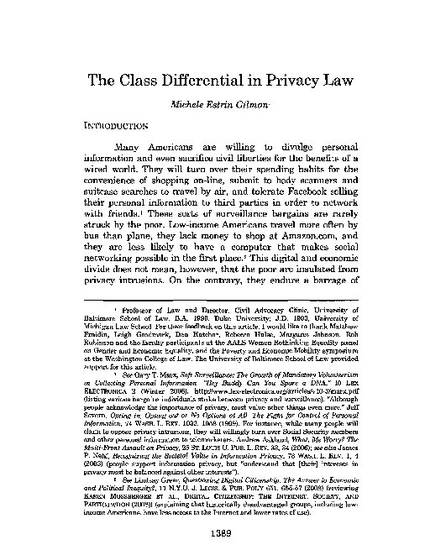
This article analyzes how privacy law fails the poor. Due to advanced technologies, all Americans are facing corporate and governmental surveillance. However, privacy law is focused on middle-class concerns about limiting the disclosure of personal data so that it is not misused. By contrast, along the welfare-to-work continuum, poor people face privacy intrusions at the time that the state or their employers gather data. This data collection tends to be stigmatizing and humiliating, and it thus not only compounds the harmful effects of living in poverty, but also dampens democratic participation by the poor. The poor interact with the government and low-wage employers in ways that are on-going and interpersonal, and as a result, the "right to be left alone" embodied in current privacy law does not protect their interests in dignity and autonomy. This article argues that poor Americans experience privacy differently than persons with greater economic resources and that the law, in its constitutional, statutory and common law dimensions, reinforces this differential. This class differential in privacy law has costs not only for the poor, but for all citizens.
